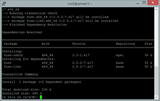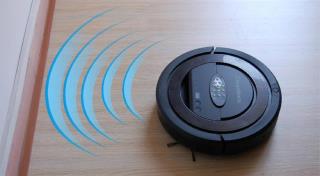Settu upp Plesk á CentOS 7
Að nota annað kerfi? Plesk er sérstakt stjórnborð fyrir vefþjón sem gerir notendum kleift að stjórna persónulegum og/eða viðskiptavinum vefsíðum sínum, gagnagrunnum
LUKS (Linux Unified Key Setup) er eitt af hinum ýmsu dulkóðunarsniðum fyrir diska sem eru fáanleg fyrir Linux sem er vettvangslaus. Þessi kennsla mun veita þér rót og skiptast á skiptingum inni í LVM (Linux Volume Manager) bindi sem er inni í dulkóðuðu LUKS skiptingunni. Þessi kennsla gerir þér einnig kleift að opna LUKS skiptinguna úr lás með því að nota einfaldaðan SSH miðlara púkinn með því að nota hvaða samhæfða SSH biðlara forrit sem er.
Á síðunni Dreifa netþjónum skaltu gera eftirfarandi:
Server Locationhlutanum.CentOS7undir ISO Libraryflipanum í Server Typehlutanum.Server Sizekaflanum.Deploy Nowhnappinn.Notaðu View Consolemöguleikann til að fá aðgang að VPS tilvikinu í gegnum noVNC stjórnborðið.
Veldu Install CentOS Linux 7valkostinn.
Ýttu á Tabtakkann.
Sláðu inn á texteftir vmlinuz initrd=initrd.img inst.stage2=hd:LABEL=CentOS\x207\x20\86_64 quietþannig að þetta lítur svona út vmlinuz initrd=initrd.img inst.stage2=hd:LABEL=CentOS\x207\x20\86_64 quiet textog ýttu á Entertakkann.
VPS mun nú ræsa í textaham CentOS uppsetningarforritið. Þú munt sjá skjá í noVNC stjórnborðinu eins og sést á myndinni hér að neðan.

Notaðu Alt + Right Arrow Keysamsetninguna til að fletta að TTY2 stjórnborðinu til að slá inn skipanir á skipanalínuna.
Sláðu inn eftirfarandi skipanir hér að neðan til að búa til skipting sem inniheldur GRUB2 ræsihleðsluforritið, ódulkóðaða /bootskipting og aðal skipting sem mun geyma LUKS skiptinguna.
parted -a opt -s /dev/vda mklabel gpt
parted -s /dev/vda unit mb
parted -s /dev/vda mkpart primary 1 3
parted -s /dev/vda name 1 grub
parted -s /dev/vda set 1 bios_grub on
parted -s /dev/vda mkpart primary 3 259
parted -s /dev/vda name 2 boot
parted -s /dev/vda mkpart primary 259 100%
parted -s /dev/vda name 3 root
Sláðu inn eftirfarandi skipun til að birta skiptinguna.
parted -s /dev/vda print
Næst skaltu fylla nafngreinda rootfsskiptinguna með gervi-handahófi gögnum. Þetta mun taka rúmlega hálftíma að klára.
dd if=/dev/urandom of=/dev/vda3 bs=1M status=progress
Í CentOS 7 nota cryptsetupskipanirnar sjálfgefna dulmálið aes-xts-plain64, sjálfgefna lykilstærð 256 bita og sjálfgefna kjötkássa SHA1. Í staðinn verður LUKS skiptingin búin til með öruggari Serpent dulmáli, með lykilstærð 512 bita og með Whirlpool kjötkássa.
cryptsetup luksFormat /dev/vda3 -c serpent-xts-plain64 -h whirlpool -s 512
Sláðu inn svörin, þegar beðið er um eftirfarandi fyrirspurnir, ýttu síðan á Entertakkann:
YESstrong-passwordstrong-passwordViðvörun Þetta leyfir rót innskráningu og afritun án lykilorðs. Drepa þennan SSH netþjón eftir að þú hefur sótt /tmp/luks-header-backup.imgskrána.
Til varðveislu, vistaðu afrit af LUKS skiptingarhausnum. Þetta tryggir að ef hausinn á LUKS skiptingunni þinni er einhvern veginn skemmdur er hægt að endurheimta hann. Ef hausinn er skemmdur án virkra öryggisafrits glatast gögnin þín að eilífu.
cryptsetup luksHeaderBackup /dev/vda3 --header-backup-file /tmp/luks-header-backup.img
Til að afrita /tmp/luks-header-backup.imgskrána af þjóninum verður að ræsa SSH netþjón tímabundið, með því að nota örugga afrita executable scpá hýsingaraðila viðskiptavinar, til að sækja hana.
Sláðu inn eftirfarandi skipun hér að neðan til að búa til SSH hýsillyklana.
sshd-keygen
Sláðu inn eftirfarandi skipun fyrir neðan til að búa til /etc/ssh/sshd_configskrána.
cp /etc/ssh/sshd_config.anaconda /etc/ssh/sshd_config
Sláðu inn eftirfarandi skipun hér að neðan til að breyta /etc/ssh/sshd_configskránni.
vi /etc/ssh/sshd_config
Til að breyta skránni, ýttu á Inserttakkann og notaðu örvatakkana til að fletta að hluta skráarinnar sem þarf að breyta.
Í línu eitt, breyttu númerinu Port 22úr sjálfgefnu í 22í handahófskennda tölu að eigin vali á milli 1025og 65535. (Dæmi: höfn 25782)
Skrunaðu niður að línu númer þrettán, ýttu á Endtakkann og ýttu á Entertakkann.
Í næstu línu skaltu bæta við HostKey /etc/ssh/ssh_host_ed25519_keyog ýta á Entertakkann.
Í næstu línu skaltu bæta við HostKey /etc/ssh/ssh_host_rsa_keyog ýta á Entertakkann.
Ýttu á Esctakkann, sláðu inn :wqog ýttu á Entertakkann til að vista skrána.
Sjálfgefið netviðmót eth0þarf IP tölu. Sláðu inn eftirfarandi skipun hér að neðan til að tengja IP-tölu sem skráð er fyrir tilvik þitt við eth0netviðmótið.
dhclient
Sláðu inn eftirfarandi skipun til að birta úthlutaða IP tölu. IP-talan verður skráð strax á eftir inetog fyrir netmask. (Dæmi: inet 192.0.2.1netmaska)
ifconfig eth0
Sláðu inn eftirfarandi skipun til að ræsa SSH þjóninn.
/usr/sbin/sshd
Ef þú notar scpskipunina frá skipanalínu á biðlaravél skaltu nota eftirfarandi skipun hér að neðan sem sniðmát til að sækja /tmp/luks-header-backup.imgskrána. Skiptu út 25782fyrir raunverulegt gáttarnúmer sem úthlutað er í /etc/ssh/sshd_config. Skiptu út 192.0.2.1fyrir raunverulega úthlutaða IP tölu.
scp -P 25782 [email protected]:/tmp/luks-header-backup.img .
Eftir að luks-header-backup.imgskráin hefur verið sótt skaltu drepa SSH netþjóninn strax með því að slá inn skipunina hér að neðan í noVNC stjórnborðsglugganum.
killall sshd
Opnaðu LUKS skiptinguna til að setja upp líkamlega LVM hljóðstyrkinn sem mun vera inni.
cryptsetup luksOpen /dev/vda3 centos
Input the passphrase created earlier to open the LUKS partition when prompted, then press the Enter key.
Enter passphrase for /dev/vda3: strong-password
Type the following command below:
ls /dev/mapper
It will contain the following files named centos, control, live-base and live-rw. The centos is the LUKS partition.
Type the following command below to create the LVM physical volume.
pvcreate /dev/mapper/centos
When successful, you will receive the following message:
Physical volume "/dev/mapper/centos" successfully created
Type the following command below to create the LVM volume group.
vgcreate ssd /dev/mapper/centos
When successful, you will receive the following message:
Volume group "ssd" successfully created
Type the following command below to create a LVM logical volume for a swap partition. Use sound judgment to create a swap partition, of the necessary size (-L = size of the volume), based on your VPS instance.
lvcreate -L 1G -n swap ssd
When successful, you will receive the following message:
Logical volume "swap" created
Type the following command below to create a LVM logical volume for the root partition. This will use the remaining free space while reserving five percent (5%) to contain LVM snapshots of your logical volumes if you so choose.
lvcreate -l 95%FREE -n root ssd
When successful, you will receive the following message:
Logical volume "root" created
Display the LVM physical volume.
pvdisplay
You will see text in the noVNC console similar to what is pictured in the image below.

Display the LVM volume group.
vgdisplay
You will see text in the noVNC console similar to what is pictured in the image below.

Display the LVM logical volume(s).
lvdisplay
You will see text in the noVNC console similar to what is pictured in the image below.

Type the following command below to deactivate the LVM volume group. This must be completed in order to allow cryptsetup to close the LUKS partition in the next step.
vgchange -a n
When successful, you will receive the following message:
0 logical volume(s) in volume group "ssd" now active
Close the LUKS volume.
cryptsetup luksClose centos
Type the following command below:
ls /dev/mapper
It will contain the following files named control, live-base and live-rw. The centos file, containing the LUKS partition, will be missing to ensure that that it was closed properly.
Type reboot and press the Enter key to reboot.
Select the Install CentOS Linux 7 option and press the Enter key.
The VPS will now boot into the GUI mode CentOS installer. You will see a screen in the noVNC console like pictured in the image below. Select Install CentOS 7 (1) and press the Enter key.

On the WELCOME TO CENTOS 7 screen, click the blue Continue button (1).

Attention If you're not using the default language of English and the locale of the United States, input your language in the search bar (1). Click on the language (2) and the appropriate locale (3) associated with it. When satisfied, click the blue Continue button (4).

On the INSTALLATION SUMMARY screen, click on INSTALLATION DESTINATION (Automatic partitioning selected) (1) under SYSTEM.

On the INSTALLATION DESTINATION screen, select the I will configure partitioning (1) option under Other Storage Options (Partitioning) and click the blue Done button (2) at the top left of the screen.

On the MANUAL PARTITIONING screen, click on the Unknown expandable accordion (1). It will reveal three partitions named BIOS Boot (vda1), Unknown (vda2) and Encrypted (LUKS) (vda3).

With the BIOS Boot partition highlighted in blue (1), select the checkbox option of Reformat (2) next to the File System: accordion and click the Update Settings button (3).

Click on the Unknown partition (1) so that it is highlighted in blue. Select the checkbox option of Reformat (2) next to the File System: accordion. Select ext2 in the File System: accordion (3), enter /boot in the text field (4) under Mount Point:, enter boot in the text field (5) under Label: and click the Update Settings button (6).

Click on the Encrypted (LUKS) partition (1) so that it is highlighted in blue. Enter the passphrase you created for LUKS partition in Step 3: Setup LVM On LUKS Full Disk Encryption in the Passphrase: text field (2) and click the Unlock button (3).

A new Unknown expandable accordion (1) will appear. It will reveal two partitions named Unknown (ssd-root) and Unknown (ssd-swap).

With the Unknown (ssd-root) partition (1) highlighted in blue, select the checkbox option of Reformat (2) next to the File System: accordion. Select xfs in the File System: accordion (3), enter / in the text field (4) under Mount Point:, enter root in the text field (5) under Label: and click the Update Settings button (6).

Click on the Unknown (ssd-swap) (1) partition so that it is highlighted in blue. Select the checkbox option of Reformat (2) next to the File System: accordion. Select swap in the File System: accordion (3), enter swap in the text field (4) under Label: and click the Update Settings button (5).

Click the blue Done button (1) at the top left of the screen.

A box named SUMMARY OF CHANGES will pop up. Click the Accept Changes button (1). This will bring you back to the WELCOME TO CENTOS 7 screen.

Click on NETWORK & HOST NAME (Not connected) (1) under SYSTEM.

On the NETWORK & HOST NAME screen, move the slider (1), next to the right of Ethernet(eth0) field, from the OFF position to the ON position. If you want to use a custom hostname instead of the default (192.0.2.1.vultr.com) in the Host name: text box (2), change it. Click the blue Done button (3) at the top left of the screen. This will bring you back to the WELCOME TO CENTOS 7 screen.

When you are satisfied with the options on the WELCOME TO CENTOS 7 screen, click the blue Begin Installation button (1).

On the CONFIGURATION screen, click on ROOT PASSWORD (Root password is not set) (1) under USER SETTINGS.

On the ROOT PASSWORD screen, enter a strong password in both the Root Password: (1) and Confirm: (2) text fields. Click the blue Done button (3) at the top left of the screen. This will bring you back to the CONFIGURATION screen.

On the CONFIGURATION screen, click on USER CREATION (No user will be created) (1) under USER SETTINGS.

On the CREATE USER screen, enter your full name in the Full name text field (1), an username in the User name text field (2), a strong password in both the Password (3) and Confirm password (4) text fields. Click on the Advanced... button (5).

A box named ADVANCED USER CONFIGURATION will pop up. In the Add user to the following groups: text field (1) under Group Membership, enter wheel and click the Save Changes button (2).

Click the blue Done button (1) at the top left of the screen.

The post-installation process will now commence. It will take a few minutes to complete. When it is finished, click on the blue Reboot button (1) to reboot your VPS instance.

Navigate back to the VULTR Server Management Screen. Click on the Settings link at the top. Click on Custom ISO on the menu on the left side. On the Custom ISO page, click on the Remove ISO button to unmount the ISO and reboot into your CentOS 7 VPS instance. Click the OK button when prompted and the VPS instance will reboot.
Navigate back to the View Console window to access the VPS instance via the noVNC console. Refresh the window if noVNC has disconnected.
You will be prompted to enter the passphrase (Example: Please enter passphrase for disk primary (luks-xxxxxxxx-xxxx-xxxx-xxxx-xxxxxxxxxxxx)!:) you created for LUKS partition in Step 3: Setup LVM On LUKS Full Disk Encryption. Enter the passphrase and press the Enter key.

You will then be presented with the console login prompt. You can now close the noVNC console window.
Log in via SSH with a regular user and update the system as follows.
sudo yum install epel-release -y
sudo yum clean all && sudo yum update -y
While still logged in as a regular user, type the following commands below to install dracut-crypt-ssh.
sudo yum install wget -y
sudo wget -O /etc/yum.repos.d/rbu-dracut-crypt-ssh-epel-7.repo https://copr.fedorainfracloud.org/coprs/rbu/dracut-crypt-ssh/repo/epel-7/rbu-dracut-crypt-ssh-epel-7.repo
sudo yum install dracut-crypt-ssh -y
Type the following command below to install the nano editor to ease editing of files.
sudo yum install nano -y
You will need to edit the default grub file located in /etc/default/grub.
sudo nano /etc/default/grub
Insert rd.neednet=1 ip=dhcp between GRUB_CMDLINE_LINUX="crashkernel=auto and rd.luks.uuid=luks-xxxxxxxx-xxxx-xxxx-xxxx-xxxxxxxxxxxx.
Save the file by entering the following keyboard combinations. Press the Ctrl + x keys, press the y key and press the Enter key.
Regenerate you GRUB configuration file by type the command below.
sudo grub2-mkconfig -o /etc/grub2.cfg
Backup the original /etc/dracut.conf.d/crypt-ssh.conf by typing the following command below.
sudo mv /etc/dracut.conf.d/crypt-ssh.conf /etc/dracut.conf.d/crypt-ssh.conf.orig
Create a new /etc/dracut.conf.d/crypt-ssh.conf file by typing the following command below.
sudo nano /etc/dracut.conf.d/crypt-ssh.conf
Copy and paste the following text below into the nano editor.
dropbear_acl="/etc/dropbear/keys/authorized_keys"
dropbear_ecdsa_key="/etc/dropbear/keys/ssh_ecdsa_key"
dropbear_rsa_key="/etc/dropbear/keys/ssh_rsa_key"
Create the directory keys under /etc/dropbear/, with the necessary directory permissions, that will hold the authorized_keys, ssh_ecdsa_key and ssh_rsa_key files.
sudo mkdir /etc/dropbear/keys/; sudo chmod /etc/dropbear/keys/
Generate the ssh_ecdsa_key and ssh_rsa_key files with the ssh_keygen program by typing the following commands below. Press the Enter key twice, for each command, when prompted for passphrases.
sudo ssh-keygen -t ecdsa -f /etc/dropbear/keys/ssh_ecdsa_key
sudo ssh-keygen -t rsa -f /etc/dropbear/keys/ssh_rsa_key
Change the file permissions on ssh_ecdsa_key, ssh_ecdsa_key.pub, ssh_rsa_key and ssh_rsa_key.pub by typing the command below.
sudo chmod 400 /etc/dropbear/keys/*_key; sudo chmod 444 /etc/dropbear/keys/*.pub
Generate public keys using the How Do I Generate SSH Keys? tutorial, found at the beginning of the tutorial under Prerequisites, for your prospective client operating system.
Copy and paste all the text in the public key into the /etc/dropbear/keys/authorized_keys file using the nano program by typing the command below.
sudo nano /etc/dropbear/keys/authorized_keys
You must first build the initramfs and any subsequent update of the dracut-crypt-ssh configuration. Type the following command below for the initial build of the initramfs.
sudo dracut -f
Once that's complete, your CentOS 7 install is set up to listen for your SSH client to connect and allow you to unlock the LUKS partition using your passphrase. You may now reboot your CentOS 7 instance by typing the command below.
sudo reboot
Á kerfum viðskiptavina, vísa til kafla 3.3. Unlocking the volumes interactivelyog 3.4. Unlocking using thelás commandá Dracut-Crypt-SSH GitHub síðu til annaðhvort afl a lykilorð hvetja eða nota unlockskipunina til að opna Luks skipting frá SSH viðskiptavinur.
Að nota annað kerfi? Plesk er sérstakt stjórnborð fyrir vefþjón sem gerir notendum kleift að stjórna persónulegum og/eða viðskiptavinum vefsíðum sínum, gagnagrunnum
Smokkfiskur er vinsælt, ókeypis Linux forrit sem gerir þér kleift að búa til framsendingarforrit á vefnum. Í þessari handbók muntu sjá hvernig á að setja upp Squid á CentOS til að snúa þér
Inngangur Lighttpd er gaffal af Apache sem miðar að því að vera miklu minna auðlindafrekt. Hann er léttur, þess vegna heitir hann, og er frekar einfaldur í notkun. Uppsetning
VULTR hefur nýlega gert breytingar á enda þeirra og allt ætti nú að virka vel út úr kassanum með NetworkManager virkt. Ef þú vilt slökkva á
Icinga2 er öflugt eftirlitskerfi og þegar það er notað í aðal-viðskiptavinamódel getur það komið í stað þörf fyrir NRPE-undirstaða vöktunareftirlit. Húsbóndinn
Að nota annað kerfi? Apache Cassandra er ókeypis og opinn uppspretta NoSQL gagnagrunnsstjórnunarkerfi sem er hannað til að veita sveigjanleika, háan
Að nota annað kerfi? Microweber er opinn uppspretta draga og sleppa CMS og netverslun. Microweber frumkóði er hýst á GitHub. Þessi handbók mun sýna þér
Að nota annað kerfi? Mattermost er opinn uppspretta, sjálfhýst valkostur við Slack SAAS skilaboðaþjónustuna. Með öðrum orðum, með Mattermost, þú ca
Það sem þú þarft Vultr VPS með að minnsta kosti 1GB af vinnsluminni. SSH aðgangur (með rót / stjórnunarréttindi). Skref 1: Uppsetning BungeeCord Fyrst af öllu
Plesk stjórnborðið er með mjög fallegri samþættingu fyrir Lets Encrypt. Lets Encrypt er ein af einu SSL veitunum sem gefa út skírteini að fullu
Lets Encrypt er vottunaryfirvöld sem sérhæfir sig í að útvega SSL vottorð án endurgjalds. cPanel hefur byggt upp snyrtilega samþættingu svo þú og viðskiptavinurinn þinn
Að nota annað kerfi? Concrete5 er opinn uppspretta CMS sem býður upp á marga áberandi og gagnlega eiginleika til að aðstoða ritstjóra við að framleiða efni auðveldlega og
Að nota annað kerfi? Review Board er ókeypis og opinn hugbúnaður til að skoða frumkóða, skjöl, myndir og margt fleira. Það er vefbundið hugbúnaðarstríð
Í þessari handbók munt þú læra hvernig á að setja upp HTTP auðkenningu fyrir Nginx vefþjón sem keyrir á CentOS 7. Kröfur Til að byrja þarftu að
YOURLS (Your Own URL Shortener) er opinn uppspretta vefslóða styttingar og gagnagreiningarforrit. Í þessari grein munum við fjalla um ferlið við uppsetningu
Using a Different System? Introduction ArangoDB is an open source NoSQL database with a flexible data model for documents, graphs, and key-values. It is
Inngangur /etc/ skrárinn gegnir mikilvægu hlutverki í því hvernig Linux kerfi virkar. Ástæðan fyrir þessu er sú að næstum allar kerfisstillingar
Margir kerfisstjórar stjórna miklu magni af netþjónum. Þegar aðgangur þarf að skrám á mismunandi netþjónum er innskráning á hvern og einn fyrir sig ca
Þessi kennsla mun fjalla um ferlið við að setja upp Half Life 2 leikjaþjón á CentOS 6 System. Skref 1: Forsendur settar upp Til að setja upp ou
Laravel GitScrum, eða GitScrum er opinn uppspretta framleiðniverkfæri hannað til að hjálpa þróunarteymi að innleiða Scrum aðferðafræðina á svipaðan hátt
Gervigreind er ekki í framtíðinni, hún er hér í nútímanum Í þessu bloggi Lestu hvernig gervigreindarforrit hafa haft áhrif á ýmsa geira.
Ertu líka fórnarlamb DDOS árása og ruglaður með forvarnaraðferðirnar? Lestu þessa grein til að leysa spurningar þínar.
Þú gætir hafa heyrt að tölvuþrjótar græða mikið af peningum, en hefur þú einhvern tíma velt því fyrir þér hvernig þeir vinna sér inn svona peninga? við skulum ræða.
Viltu sjá byltingarkenndar uppfinningar frá Google og hvernig þessar uppfinningar breyttu lífi hvers manns í dag? Lestu síðan til að blogga til að sjá uppfinningar frá Google.
Hugmyndin um að sjálfkeyrandi bílar fari á göturnar með hjálp gervigreindar er draumur sem við höfum átt um tíma núna. En þrátt fyrir nokkur loforð eru þau hvergi sjáanleg. Lestu þetta blogg til að læra meira…
Þar sem vísindin þróast hratt og taka yfir mikið af viðleitni okkar, eykst hættan á því að verða fyrir óútskýranlegri einstæðu. Lestu, hvað sérkenni gæti þýtt fyrir okkur.
Geymsluaðferðir gagna hafa verið að þróast gæti verið frá fæðingu gagna. Þetta blogg fjallar um þróun gagnageymslu á grundvelli upplýsingamynda.
Lestu bloggið til að þekkja mismunandi lög í Big Data Architecture og virkni þeirra á einfaldasta hátt.
Í þessum stafræna heimi hafa snjallheimilistæki orðið afgerandi hluti af lífi. Hér eru nokkrir ótrúlegir kostir snjallheimatækja um hvernig þau gera líf okkar þess virði að lifa því og einfaldara.
Nýlega gaf Apple út macOS Catalina 10.15.4 viðbótaruppfærslu til að laga vandamál en svo virðist sem uppfærslan sé að valda fleiri vandamálum sem leiða til múrsteins á Mac vélum. Lestu þessa grein til að læra meira








